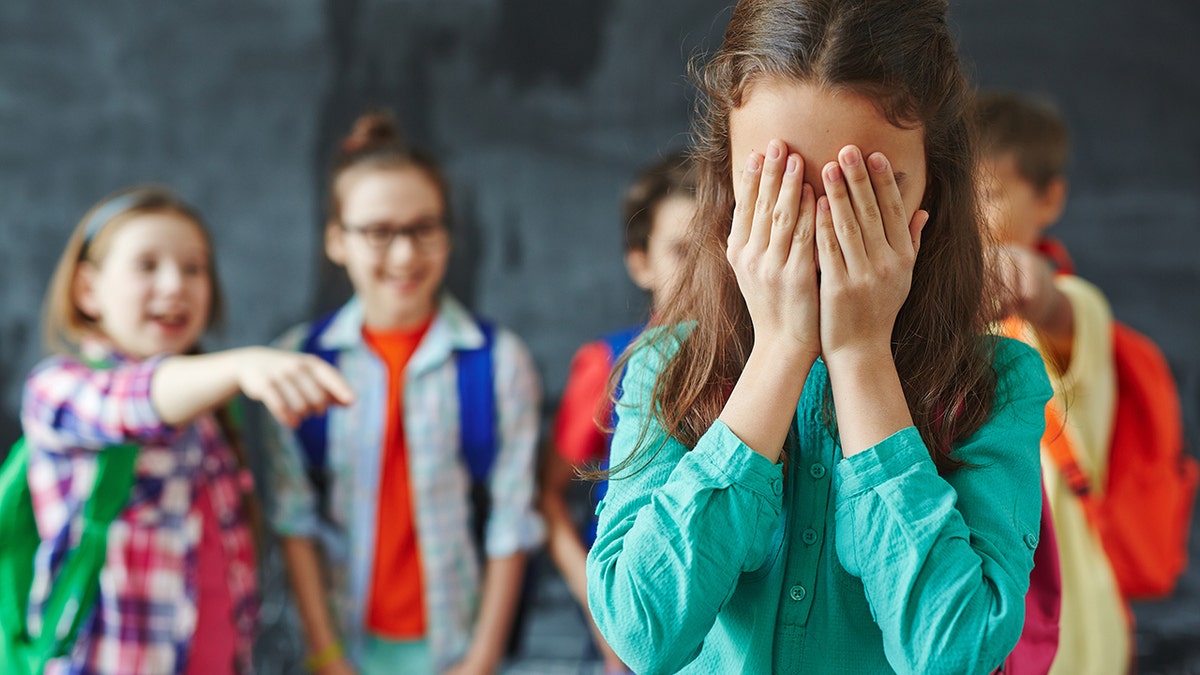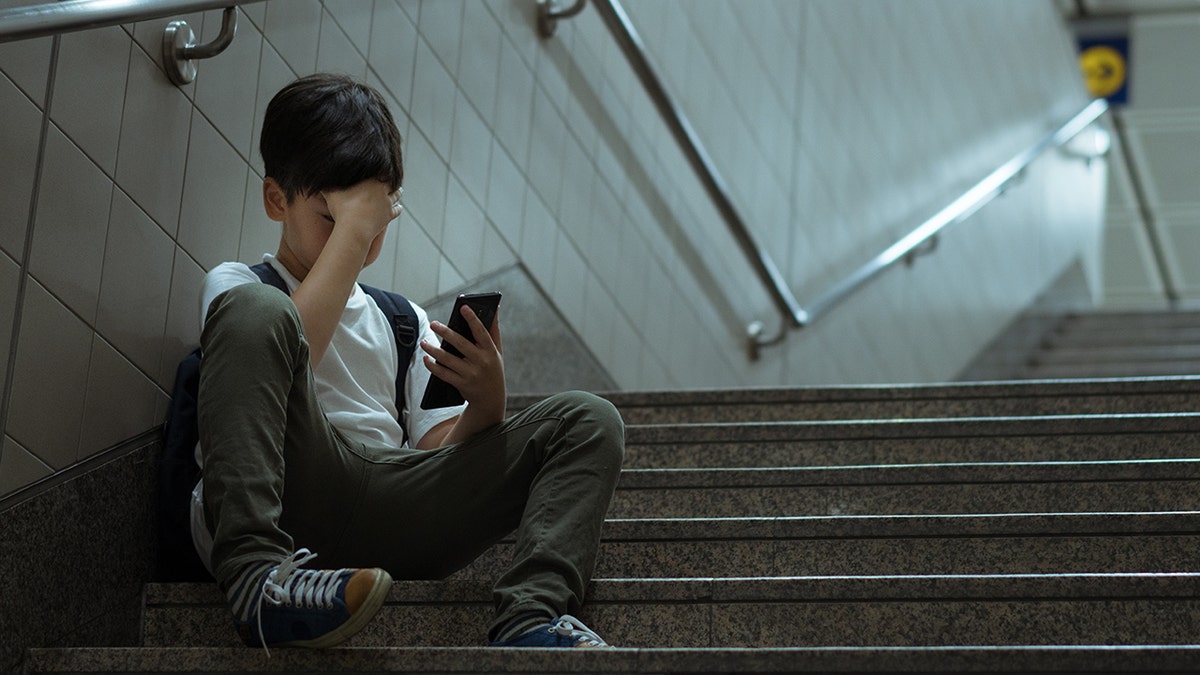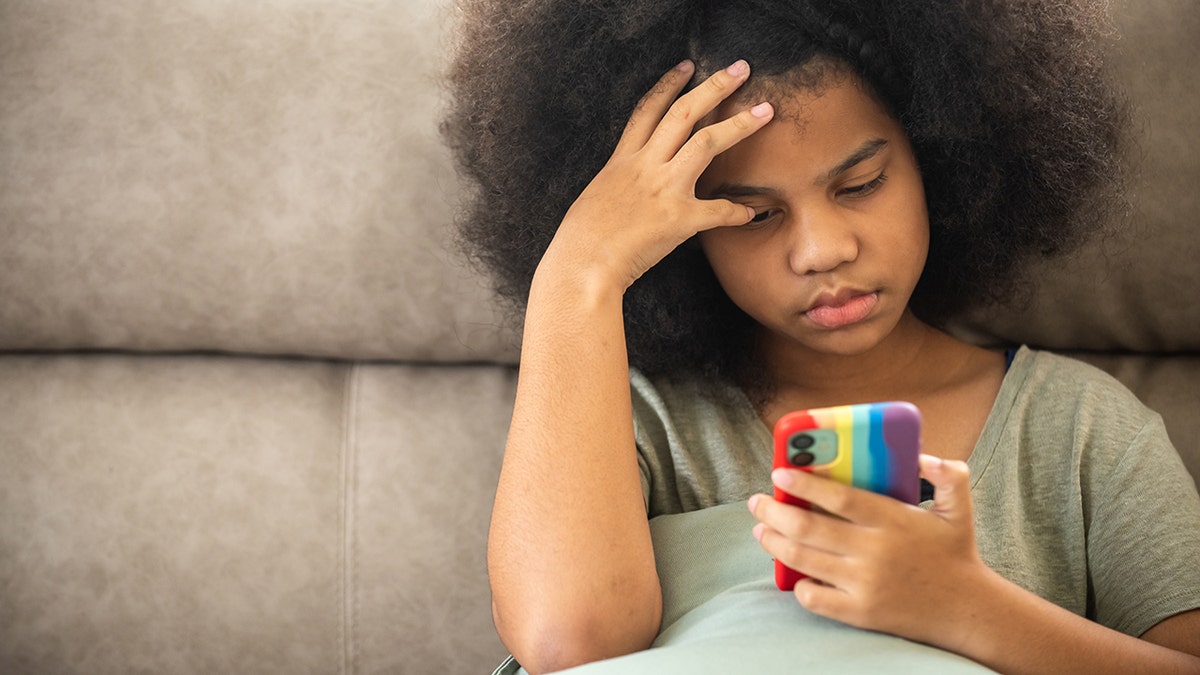Social media has made a 'mess' out of America's youth: Dr. Lisa Strohman
Digital Citizen Academy founder Dr. Lisa Strohman joins 'One Nation with Brian Kilmeade' to weigh in on the social media crisis for kids in the United States.
With the recent vote to ban TikTok in Montana, parents and educators appear to be examining the role of social media in their children's lives.
And when it comes to social media and kids, experts say there's a lot of downside.
That's also the message from a middle school teacher's now-viral Facebook post, which has been shared 85,000 times.
"Imagine something embarrassing happened to you at school when you were in the 7th grade," the post, written by Jackie Tate of McEwen, Tennessee, reads.

Jackie Tate, a middle school teacher from McEwen, Tennessee, sounds off in a viral Facebook post, writing: "Kids aren’t ready for social media. It starts with us parents. Please share." (iStock)
It goes on to detail how, in the generation of the parents reading it, the incident would be forgotten in a few weeks. But in the age of social media, their children may never be able to leave their worst moments behind.
"Now imagine you did something embarrassing in 7th grade. And everyone laughed and it was awful. But someone also caught it on Snap Chat. And turned it into a meme. And a Tik Tok. And everyone in school saw it. And took a screen shot of it. And spread it further. And you couldn’t get away from it. And no one forgot. And you couldn’t either. And people were still re sharing it months later," Tate wrote, followed by a broken heart emoji.
"Just sit there and imagine it for a minute," she added.
Dr. Joshua Stein, child and adolescent psychiatrist at Newport Healthcare's PrairieCare Program in Minnesota, told Fox News Digital there is merit to Tate's concern.
"I have often seen a blunder, mistake, or profound negative decision that has gone viral and subsequently lead a young person to my clinic," Stein said.
"The persistence of these events can steal a child’s opportunity to learn from mistakes, whether large or small, and can lead to a cycle of decline and embarrassment. In the worst circumstances, it can lead to bullying, harassment, and eventually even school failure and mental health decline."
Commenters on the post called out how bullying prior to the Internet does not compare to the bullying of today.

Jackie Tate has gone viral on Facebook after voicing her theory as to why she feels kids aren't ready for social media today. (iStock)
"The experiences are not the same," one person wrote.
"Oh my. I thought of one time when I was in 6th grade. Yes. Bad. I can’t even imagine," another user commented.
"Scares the fire out of me. So true!" one person said.
"It's terrifying," said another.
Stein agreed. "My first and foremost concern is that it removes the safety, comfort, and sanctuary of home. Prior to social media, once you were in the home, you were relatively safe. Bullying, predatory adults, and harassment ended as a child got off the bus. Now, in the 24-hour cycle of existence, these attacks can escalate even while a parent may feel their child is safely in their room."
Still, Stein worries an "all or nothing approach" to social media might result in kids hiding issues from their parents.
"It can push the social media used to be covert," he said. "When this happens, a child may avoid their parent when problems occur. Parents alone cannot correct this by just attempting to stop access. Social media companies must also be responsible for their platforms protecting children."

"I have often seen a blunder, mistake, or profound negative decision that has gone viral and subsequently lead a young person to my clinic," Dr. Joshua Stein, child and adolescent psychiatrist at Newport Healthcare's PrarieCare Program in Minnesota, told Fox News Digital. (iStock)
'OLD RETIRED TEACHER' PLEADS FOR KINDNESS AS THE 'NEXT TIKTOK SCHOOL CHALLENGE'
If there's any good to be found in social media, Stein said it's the connection.
"Teenagers can stay in touch with old and new friends, find communities of shared interest, and support each other," he said.
In addition to the dangers, Stein said, social media can also be "a profound time waste. The short burst videos, posts, and patterns of feeds make it hard to put down. Rather than engaging in life, arts, sports, etc., kids can lose their day in this unproductive manner. They stagnate, rather than grow."

Dr. Joshua Stein offers three tips for parents who want to keep a close eye on their kids' social media use: communicate, consider your child's age and monitor all use of devices. (iStock)
Stein offered top three tips for parents when it comes to their kids and social media:
1. Communicate
Stein suggested talking about family values in connection to social media use.
"Define the dangers, the risk of internet permanence, and how quickly things can get out of hand," he noted. "Regularly inquire by asking, for example, what they saw online today that was weird, uncomfortable or scary. An easy way to start this conversation is by asking if any friends have ever struggled with safety or bullying online."
CLICK HERE TO SIGN UP FOR OUR LIFESTYLE NEWSLETTER
2. Consider their age
"Impulsivity is age appropriate as a teenager. It leads to mistakes, some large and some small," Stein said, adding his opinion that the age of 12 is too young for social media.
Stein said parents should consider waiting until children are older before they have access to social media platforms.
"Imagine if all your middle school moments were recorded and your child could see all of your mistakes and embarrassments. It is disconcerting to say the least."

"Regularly inquire by asking, for example, what they saw online today that was weird, uncomfortable or scary," Dr. Stein suggested. "An easy way to start this conversation is by asking if any friends have ever struggled with safety or bullying online." (iStock)
3. Monitor, Monitor, Monitor
Be sure to monitor all devices and gaming systems for safety purposes.
"I encourage families to discuss that this is not a punishment, but rather a safety concern," Stein said. "This should be done weekly. Once safety concerns are present, access can be shut down, not as punishment, but as a safety measure."


